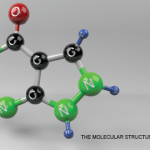In a new-patient consultation for joint pain, you see a 75-year-old man with a history of dementia, stage 3a chronic kidney disease (CKD) and nephrolithiasis. He has a uric acid level of 7.5 mg/dL. His medication list includes 300 mg daily allopurinol. What is NOT an indication for allopurinol?
CKD-FIX
Elevated serum urate levels are associated with progression of chronic kidney disease (CKD). In the CKD-FIX study, a randomized, controlled trial, Badve et al. set out to determine whether urate-lowering treatment with allopurinol can attenuate the decline of the estimated glomerular filtration rate (eGFR) in patients with chronic kidney disease at risk for progression.1
Adults with stage 3 or 4 CKD and no history of gout who had a urinary albumin:creatinine ratio of 265 or higher (with albumin measured in milligrams and creatinine in grams) or an eGFR decrease of at least 3.0 mL per minute per 1.73 m2 of body-surface area in the preceding year were randomly assigned to receive allopurinol (100 to 300 mg daily) or placebo. The primary outcome measured was the change in eGFR from randomization to week 104, calculated with the Chronic Kidney Disease Epidemiology Collaboration creatinine equation.
Enrollment was stopped because of slow recruitment after 369 of 620 intended patients were randomly assigned to receive allopurinol (185 patients) or placebo (184 patients). Three patients per group withdrew immediately after randomization. The remaining 363 patients (mean eGFR, 31.7 mL per minute per 1.73 m2; median urine albumin:creatinine ratio, 716.9; mean serum urate level, 8.2 mg per deciliter) were included in the assessment of the primary outcome. The change in eGFR did not differ significantly between the allopurinol group and the placebo group (−3.33 mL per minute per 1.73 m2 per year [95% confidence interval {CI}, −4.11 to −2.55] and −3.23 ml per minute per 1.73 m2 per year [95% CI, −3.98 to −2.47], respectively; mean difference, −0.10 ml per minute per 1.73 m2 per year [95% CI, −1.18 to 0.97]; P=0.85). Serious adverse events were reported in 84 of 182 patients (46%) in the allopurinol group and in 79 of 181 patients (44%) in the placebo group
In patients with CKD and a high risk of progression, urate-lowering treatment with allopurinol did not slow the decline in eGFR when compared with placebo.
Calcium Oxalate Calculi
In a double-blind study, Ettinger et al. examined the efficacy of allopurinol in the prevention of recurrent calcium oxalate calculi of the kidney.2
Sixty patients with hyperuricosuria and normocalciuria who had a history of calculi were randomly assigned to receive either allopurinol (100 mg three times daily) or a placebo. After the study, the placebo group had 63.4% fewer calculi (P<0.001), whereas the allopurinol group had 81.2% fewer calculi (P<0.001). During the study period, the mean rate of calculous events was 0.26 per patient per year in the placebo group and 0.12 in the allopurinol group. When the treatment groups were compared by actuarial analysis, the allopurinol group was found to have a significantly longer time before recurrence of calculi (P<0.02). We conclude that allopurinol is effective in the prevention of calcium oxalate stones in patients with hyperuricosuria. The large reduction in the frequency of calculi in the placebo group underscores the positive treatment bias that regularly occurs in trials of prophylaxis against renal calculi when historical controls are used.
References
- Badve SV, Pascoe EM, Tiku A, et al.; CKD-FIX study investigators. Effects of allopurinol on the progression of chronic kidney disease. N Engl J Med. 2020 Jun 25;382(26):2504–2513.
- Ettinger B, Tang A, Citron JT, et al. Randomized trial of allopurinol in the prevention of calcium oxalate calculi. N Engl J Med. 1986;315:1386–1389.


